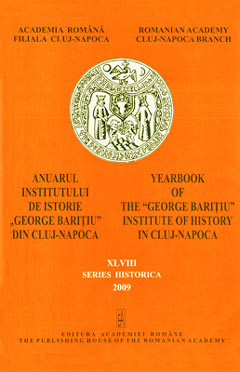Domnia şi "casa domniei" în Ţara Românească. Etimologie şi semnificaţie istorică (secolele XIV-XVI)
Rulership and "House of Rulership" in Wallachia. Etymology and Historical Significance (14th-16th centuries)
Author(s): Liviu Marius IlieSubject(s): History
Published by: Editura Academiei Române
Keywords: Rulership; Wallachia; Middle Age; Etimology; Influences; House of Rulership; political institution
Summary/Abstract: The most important political institution from the Romanian Middle Ages is domnia, an institution that finds its etymological roots in the word domn (prince); the Romanian domn comes from the Latin dominus, which meant the master or the holder of the house. To understand what domnia meant, one must understand how the princes from Wallachia imagined their house. The documents issued by the political sovereigns from Wallachia and some fragments of the Romanian chronicles describe the "house" either as the prince's court or larder (in a word, his patrimony) or his familiares (his noblemen or court officials, who could be in several situations, the prince's relatives).
Journal: Anuarul Institutului de Istorie »George Bariţiu« - Series HISTORICA
- Issue Year: XLVIII/2009
- Issue No: 48
- Page Range: 27-45
- Page Count: 19
- Language: Romanian

